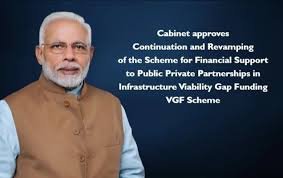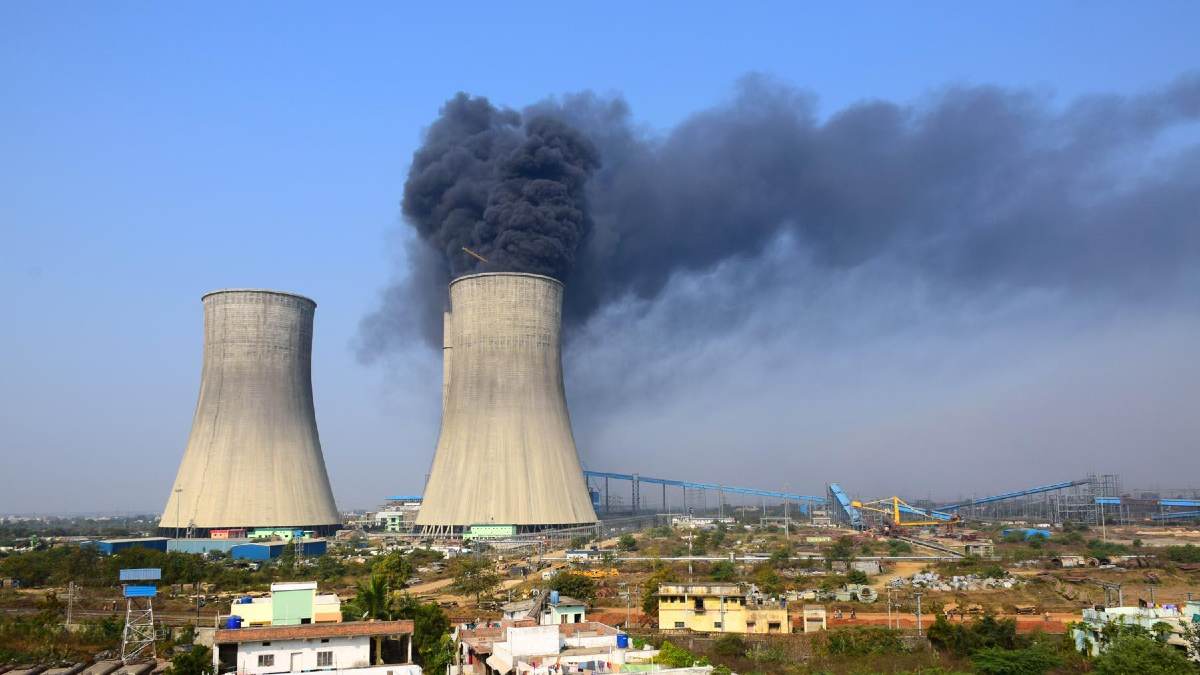Cabinet Approves Rs 8,500 Crore Viability Gap Funding Scheme for Coal Gasification
The Union Cabinet has recently given its nod to a groundbreaking Viability Gap Funding (VGF) scheme, allocating a substantial sum of Rs 8,500 crores for the promotion of coal gasification projects. This move holds significant implications for candidates preparing for government exams, especially those eyeing positions in teaching, law enforcement, banking, railways, defense, and civil services like PSCS to IAS.
In a progressive step towards promoting clean and sustainable energy, the Cabinet has approved a VGF scheme aimed at boosting coal gasification projects. This initiative aligns with the government’s broader agenda of reducing carbon emissions and fostering eco-friendly energy alternatives.
Significance for Aspirants
For aspirants targeting government exams, understanding the implications of such policy decisions is crucial. The knowledge of the government’s commitment to sustainable energy solutions can be a valuable asset, especially in exams where contemporary socio-economic and environmental issues play a pivotal role.
Key Features of the VGF Scheme
The approved scheme involves a substantial financial commitment of Rs 8,500 crores, which will serve as a viability gap funding for coal gasification projects. This funding is expected to attract private investments and promote innovation in the sector.
Impact on Various Sectors
This decision will have far-reaching consequences across diverse sectors, including energy, environment, and economy. Aspirants should be well-versed with the potential impact on industries, job opportunities, and overall economic development.
Government’s Green Initiatives
The approval of this scheme is in line with the government’s broader green initiatives. Aspirants should be knowledgeable about such policy measures, as questions related to environmental policies are becoming increasingly common in competitive exams.

Why this News is important
Importance of the Cabinet’s Approval
The recent approval of the Rs 8,500 Crore Viability Gap Funding (VGF) scheme for coal gasification by the Union Cabinet is a pivotal development with multifaceted importance.
Boosting Clean Energy Solutions
This decision underscores the government’s commitment to promoting clean and sustainable energy solutions. The VGF scheme is poised to encourage innovation in coal gasification projects, contributing to a greener and eco-friendly energy landscape.
Implications for Various Sectors
The allocation of Rs 8,500 crores holds significant implications for multiple sectors, including energy, environment, and economy. Aspirants should comprehend the potential impact on job creation, industrial growth, and environmental sustainability.
Aligning with Global Trends
The approval aligns with global trends in reducing dependence on traditional energy sources and embracing cleaner alternatives. Aspirants should be aware of India’s efforts to align with international environmental goals and agreements.
Enhancing India’s Economic Standing
The decision reflects the government’s proactive stance in enhancing India’s economic standing through investments in cutting-edge technologies. Aspirants should understand the link between sustainable energy policies and economic development.
Write Historical Context
Evolution of Coal Gasification in India
The approval of the Viability Gap Funding (VGF) scheme for coal gasification is rooted in India’s historical efforts to diversify its energy sources and reduce reliance on conventional fuels.
Early Initiatives in Clean Energy
Over the past few decades, India has embarked on a journey to explore cleaner and more sustainable energy alternatives. The focus on clean energy gained momentum with the realization of the environmental impact of traditional energy sources.
Policy Shifts Towards Sustainability
Historically, policy shifts have played a crucial role in shaping India’s energy landscape. The government’s commitment to sustainability has been evident through various initiatives and policies, paving the way for the recent approval of the VGF scheme.
Global Inspiration for Green Practices
India’s commitment to sustainable energy practices is not isolated but draws inspiration from global efforts to address climate change. Historical events such as international agreements and climate conferences have influenced India’s approach to cleaner energy solutions.
Write 5 Key Takeaways
Key Takeaways from “Cabinet Approves Rs 8,500 Crore Viability Gap Funding Scheme for Coal Gasification”
| Serial Number | Key Takeaway |
|---|---|
| 1 | Financial Commitment: The Union Cabinet’s approval involves a substantial financial commitment of Rs 8,500 crores, serving as a Viability Gap Funding for coal gasification projects. |
| 2 | Promotion of Innovation: The scheme is designed to promote innovation in the coal gasification sector, encouraging the development of cleaner and more sustainable energy solutions. |
| 3 | Impact on Multiple Sectors: The decision has far-reaching consequences across sectors, including energy, environment, and economy, with potential implications for job creation and industrial growth. |
| 4 | Government’s Green Initiatives: The approval aligns with the government’s broader green initiatives, emphasizing the commitment to environmental sustainability and reducing carbon emissions. |
| 5 | Relevance for Aspirants: Aspirants preparing for government exams should be aware of the significance of such policy decisions, as questions related to environmental policies are becoming increasingly common in competitive exams. |
Important FAQs for Students from this News
Q1: What is the Viability Gap Funding (VGF) scheme for coal gasification?
A1: The VGF scheme is a financial initiative approved by the Union Cabinet, allocating Rs 8,500 crores to promote coal gasification projects. It aims to bridge the viability gap and attract private investments in the sector.
Q2: How does the VGF scheme contribute to sustainable energy solutions?
A2: The VGF scheme encourages innovation in coal gasification, promoting cleaner and sustainable energy practices. The financial commitment of Rs 8,500 crores is expected to drive advancements in the sector.
Q3: What sectors will be impacted by the approval of the VGF scheme?
A3: The approval has far-reaching consequences across sectors such as energy, environment, and economy. Aspirants should be aware of potential implications on job creation, industrial growth, and environmental sustainability.
Q4: What is the historical context of coal gasification in India?
A4: India’s historical efforts to diversify energy sources and reduce reliance on conventional fuels have led to the recent approval of the VGF scheme. Understanding this context provides insight into the nation’s commitment to cleaner energy alternatives.
Q5: How does the approval align with global trends in sustainable energy?
A5: The approval aligns with global efforts to reduce dependence on traditional energy sources. Aspirants should be aware of India’s commitment to international environmental goals and agreements.
Some Important Current Affairs Links

















